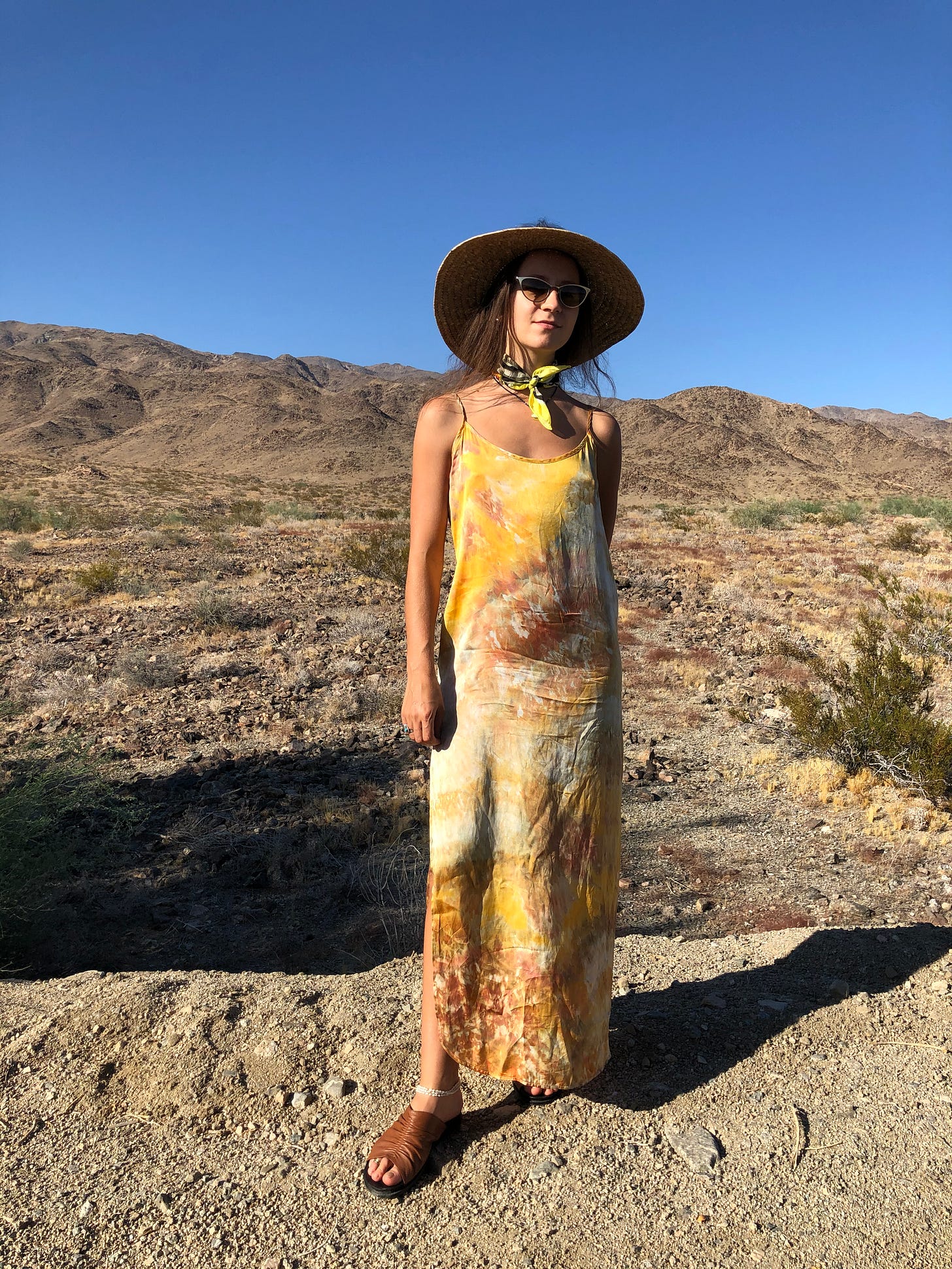After my dad’s car accident left him completely blind, we coped the only way we knew how—through humor. We nicknamed him Helen Keller and my stepmom SID (Seeing Eye Dog). It was dark, sure, but it gave us space to laugh, to breathe, to process the kind of pain that might otherwise have swallowed us whole. Humor has always been my lifeline. It’s how I’ve learned to navigate life’s absurdities and protect myself from their weight.
Over time, I began joking that my mom was a genius for figuring out how to give me two dads in one lifetime. The joke was classic deflection—a way to make light of something profound. Humor isn’t just how I process grief or chaos; it’s how I make sense of the tangled, often contradictory, parts of myself. And yet, there are some truths too big for humor to hold.
After my dad passed, I read Laura Lynn Jackson’s Signs, a book about connecting with loved ones who’ve crossed over. One idea stood out to me: choosing a symbol—a specific, hyper-personal sign—as a way to stay attuned to their presence. Inspired, I chose something unmistakable: a cat named Robert. My dad’s middle name was Robert, I love cats so
it felt fitting. The idea was that if I ever came across a cat named Robert, it would be his way of winking at me, a little reminder that we’re still connected.
So, when I met my biological dad—a guy named Robert, a musician from Chicago, a cool cat—it felt cosmic. Maybe it’s a stretch, or maybe it’s exactly the kind of thing my dad would do. A nod. A quiet, mischievous way of saying, I’m still here, rugrat. I’m with you in this.
The paradox of two dads has rattled me in ways I didn’t see coming. Things change, and yet, things stay the same. My dad, the one who raised me, will always be my dad. Leaning into the curiosity of this unexpected plot twist doesn’t mean abandoning our connection—it means honoring its complexity.
But even as I’ve embraced this new reality, lingering thoughts persist. What would my dad have done if he were alive when all of this surfaced? Would he have loved me any differently? Would he have avoided talking about it? And what would he say to my mom? These questions are like shadows, hard to pin down but impossible to ignore. I’ve had to disentangle myself from guilt, even when it’s not mine to carry.
This journey to meet my long-lost family was filled with excitement, nerves, and the kind of urgency I generate when I’ve made up my mind. I wanted to be in control—metaphorically and literally—so I took the wheel and sped toward the unknown.
We were on a long stretch of highway in the barren Arizona desert when we passed a gas station. My boyfriend suggested we stop for gas. I waved him off. When we saw a sign warning there wouldn’t be another gas station for 50 miles, he suggested it again. I had 49 miles left on the dashboard—plenty of wiggle room, or so I thought.
We drove past a federal prison, the road lined with ominous signs reading, "Prison Area: Do Not Pick Up Hitchhikers." Minutes later, the car sputtered to a stop—out of gas, nine miles shy of the station I’d been so sure we’d reach. As we waited for AAA to arrive, I did the only thing I could: snapped photos to commemorate the absurdity of it all.

Still recovering from my surgery, I styled every outfit with a scarf around my neck to conceal the incisions. It was my way of protecting myself, not just physically but emotionally. Meeting this new family of mine for the first time felt daunting enough without the added layer of sharing something so intimate and vulnerable.
I knew I’d have to tell them about how I found out I had cancer the first time—the journey it set me on, and how it led to this second, aggressive surgery. Illness is a burden, one shared not just by the ill but also by those who care for and about them. I was acutely aware of the weight I might be bringing into this dynamic, the delicate balance of vulnerability and first impressions.
To my surprise, we all found more levity than I expected. Conversations flowed, laughter softened the edges, and the connection we built in those first moments created space for healing—both mine and theirs.
Meeting my biological dad wasn’t just a reunion; it was an arrival—a plunge into an established family dynamic where no shared history existed. As an adult, this is a rare and disorienting way to enter a family. Without the weight of expectations, we were free to sense into who we wanted to be to each other. It was an exhilarating challenge: close yet far apart, strangers bound by biology but not yet by choice. In many ways, it was an opportunity to start fresh.
The first night we met, they arrived at our Airbnb, and my nervousness hit me like a heatwave. True to my control-freak nature, I had insisted on making dinner—enchilada pie—partly to avoid the dreaded conversation about my food preferences, but mostly to keep my hands busy. When the doorbell rang, my boyfriend and I started pacing, unsure what to do. Before we could answer, they appeared at the back sliding door.
Keep reading with a 7-day free trial
Subscribe to Two Truths and a Lie to keep reading this post and get 7 days of free access to the full post archives.



